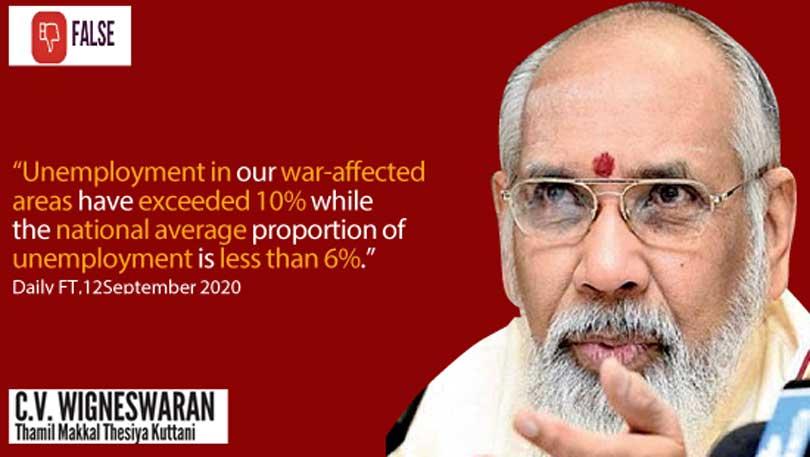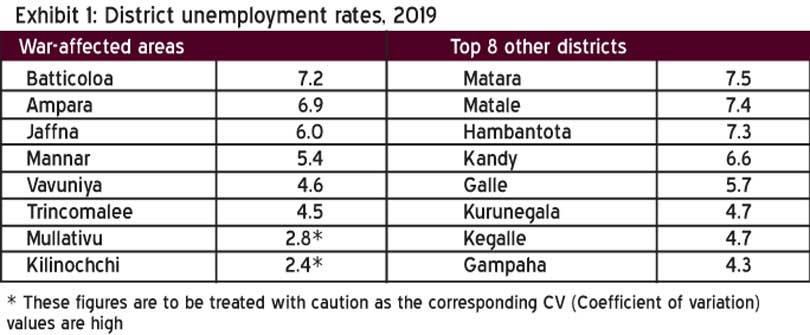Reply To:
Name - Reply Comment

 To evaluate this statement, FactCheck referred to the 2019 annual report of the Sri Lanka Labour Force Surveys published by the Department of Census and Statistics (DCS). For purposes of this analysis we consider the districts falling into the Northern and Eastern provinces as “war-affected” areas.
To evaluate this statement, FactCheck referred to the 2019 annual report of the Sri Lanka Labour Force Surveys published by the Department of Census and Statistics (DCS). For purposes of this analysis we consider the districts falling into the Northern and Eastern provinces as “war-affected” areas.
In the war-affected areas the highest district unemployment rate is 7.2%, in Batticaloa, and the weighted average unemployment rate is of 5.8%, both of which are much less than the 10% claimed by the MP. (In several districts in the Northern Province, where unemployment rates are very low, DCS notes that its estimation may not be statistically reliable; however, this is not the case for districts with the larger unemployment estimations).
The national weighted unemployment rate was 4.4%. There is a 1.4 percentage point difference against war-affected areas, which is less than half the percentage point difference claimed by the MP. The districts with the highest unemployment rates in Sri Lanka are recorded as Matara (7.5%), Matale (7.4%) and Hambantota (7.3%), which all exceed the highest district unemployment rate recorded in the war-affected districts (Exhibit 1).
Because the rate and disparity of unemployment rates in war-affected areas are very much lower than what the MP claimed, we classify his statement as FALSE.
*FactCheck’s verdict is based on the most recent information that is publicly accessible. As with every fact check, if new information becomes available, FactCheck will revisit the assessment.
NOTE: Despite the MP’s claims on unemployment rates being very inaccurate, war-affected districts do perform worse on other statistics such as labour force participation rates and jobs per capita.

FactCheck is a platform run by Verité Research.
For comments, suggestions and feedback, please visit www.factcheck.lk.